Hey there reader, Frohen Heiligabend! Have you been enjoying the colorful lights and the beautiful Christmas markets this season in Kiel and other cities? I couldn’t help but notice how festive and rich Germany’s Christmas culture genuinely is. Even though this particular holiday holds a special place in the hearts of many people across the world, Germany’s lively celebration spirit seems to stand out. It’s an engaging culture beyond the twinkling lights and festive markets. Have you ever wondered why that is?
A holiday culture rooted in deep tradition
Germany holds a rich heritage of Christmas customs. That is so because there is a strong emphasis on preserving and passing down age-old traditions, coupled with a deep sense of community. A study conducted by the University of the Bundeswehr in Neubiberg found that in 2022, 81% of Germany’s residents participated in Christmas celebrations. Some classic German traditions and festivities include:
Christmas tree (Tannenbaum) decorating – Usually adorned with traditional color-coordinated decorations and illuminated by white lights, German Christmas trees typically feature wooden ornaments and authentic candle adornments. Traditionally, The trees are typically put up until January 6th, which is the day of the Holy Three Kings (die Heiligen Drei Könige). An online survey by Statista revealed that 43% of Germans will put up a real Christmas tree this year, whereas 24% of Germans will be using an artificial tree.
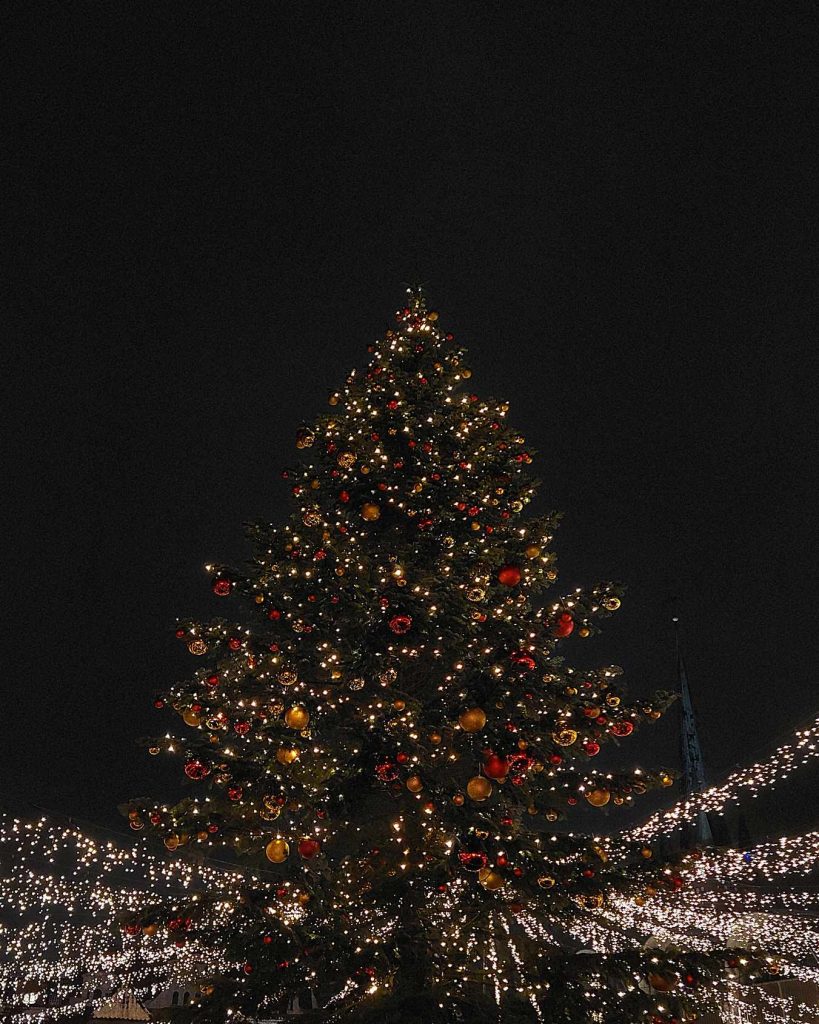
A Christmas tree in Lübeck. Photo by Elzė Puodžiūnaitė
Advent wreaths (Adventskranz) making – the Christmas season officially begins in early December with the Advent season. This period signifies the four Sundays leading up to Christmas. As part of this tradition, households typically display an ornamental Advent wreath (Adventskranz) featuring four candles. Lighting one candle occurs on the first Sunday, followed by lighting another candle on each subsequent Sunday leading up to Christmas. By Christmas Day, all four candles are burning, symbolizing the arrival of the festive season.
Another delightful aspect of the Advent season is the advent calendars (Adventskalender). These calendars usually consist of cardboard and contain 24 small numbered doors each corresponding to a day in December leading up to Christmas Eve. Behind these doors, one can find illustrations, messages, or small festive images. A wide array of advent calendar variations exist, with chocolate versions among the favorites.

Chocolate advent calendar. Photo by Elzė Puodžiūnaitė
Christmas markets (Weihnachtsmärkte) – The renowned Christmas markets, with their vibrant displays of crafts, festive foods, and warm beverages are season staples. Nearly every German city hosts at least one Christmas market, often featuring a grand Christmas tree on a prominent square. It’s even quite common for each market to adopt a specific theme. The Christmas markets typically commence towards late November and remain open until December 24th. As per a 2017 YouGov survey, 73% of Germans expressed that their advent season feels incomplete without a visit to these markets. The study also conducted that, 81% indulge in Glühwein, the customary hot spiced red wine, 34% find pleasure in purchasing their Christmas gifts at these markets, and 69% believe that these markets significantly contribute to creating a festive atmosphere. It is also important to mention that these markets are so beloved, that they end up bringing not only locals but also visitors from around the world.
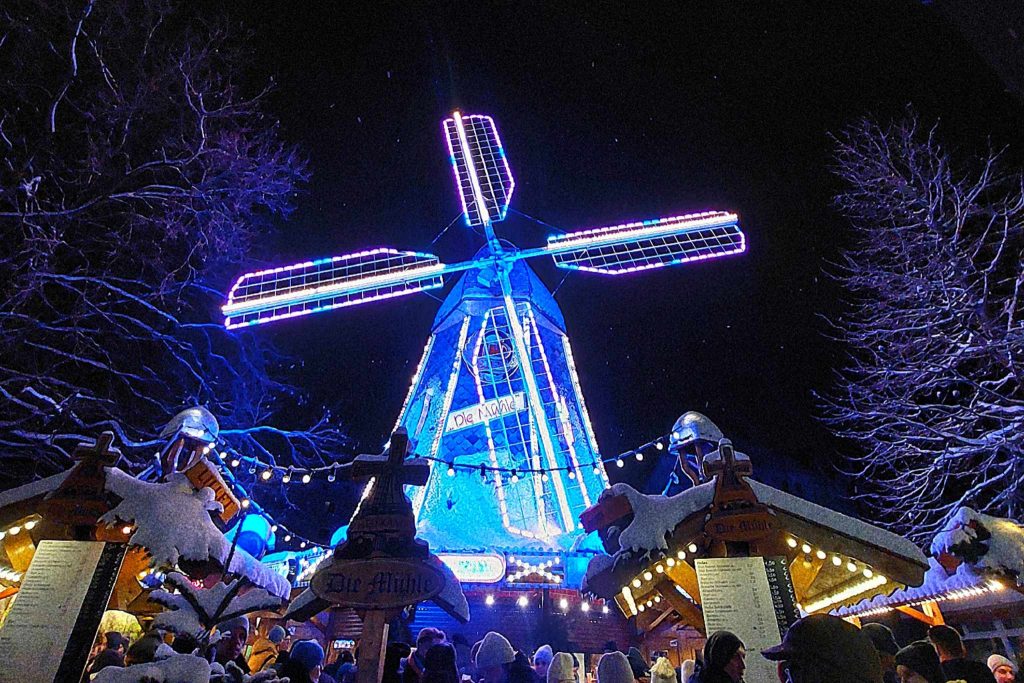
A Christmas market in Kiel. Photo by Elzė Puodžiūnaitė
Glimpsing Into Christmas Traditions Through the Eyes of Germans
I was eager to discover why Christmas is so beloved in Germany by the locals themselves, so I decided to take my research a step further and conduct a short interview with two of my lovely German friends Finja and Liv, whom I have been living with this semester.
Elzė: What in your opinion are the most popular Christmas traditions in German families? Why do you think so?
Finja: The most popular ones would include eating with the whole family, going to church with the family, watching films together e.g. Three Hazelnuts for Cinderella, getting a Christmas tree and decorating it together and making advent wreaths or having an advent Calendar. The main reason for these traditions is to spend quality time with loved ones.
Liv: I think that it’s setting up and decorating a Christmas tree in the living room, baking and decorating cookies, eating and singing with the family, and opening presents on December 24th. I think these are all things that we can do well together as a family because everyone has fun while doing something. It’s mostly just great to do something together with the family.
Elzė: Why is Christmas so popular in Germany in your opinion?
Finja: It’s mainly because Germany is strongly influenced by Christian culture.
Liv: Many are religious/Christian, although now some (I don’t know how many) celebrate for non-religious reasons, to simply spend a good time with their family/loved ones, as I think there are simply few other opportunities to get together with the whole family. And once you’ve grown up with it, you continue the traditions more or less automatically. Nonetheless, it’s probably because of this special Christmas atmosphere that makes people wait for Christmas every year.
Another thing I noticed, from spending this holiday season in Germany, is how the locals are so welcoming and kind, as there is a need to spend a lot of time collectively. For instance, my German roommates suggested baking Christmas pastries together, which ended up being a heartwarming experience and a beautiful reflection of our shared bond during this festive season. Another experience was unexpectedly receiving little Christmas gifts by my door during December, such as chocolates or ornaments, which felt like an ultimate embodiment of warmth and welcome. I was extremely delighted, as this felt like a genuinely welcoming atmosphere that truly embraced the spirit of the season.
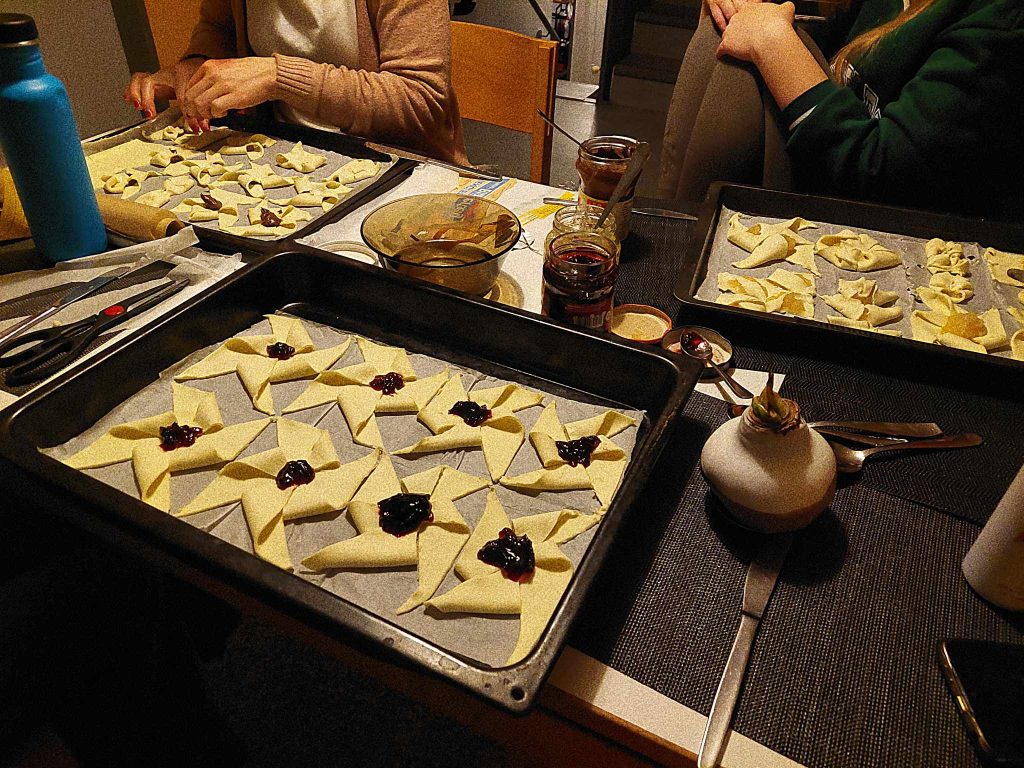
Baking Christmas treats together. Photo by Elzė Puodžiūnaitė
The vibrancy of Christmas in Germany comes from its rich history of traditions, cultural heritage, and community spirit. From the bustling Christmas markets to the cherished customs like the Advent season, adorned Christmas trees, and heartwarming gatherings, Germany’s celebration of Christmas is more than just a festivity, it’s a harmonious blend of history and togetherness, that continues to be passed down through generations. The emphasis on family, alongside modern festivities, creates the essence of the holiday season, which continues to draw people together year after year.
![FHews – [ fju:s]](http://fhews.de/wp-content/uploads/2015/05/fhews_logo2_3B8ACC.jpg)






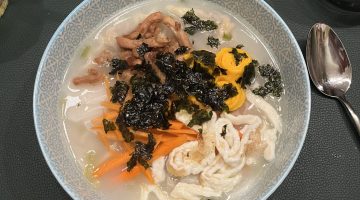

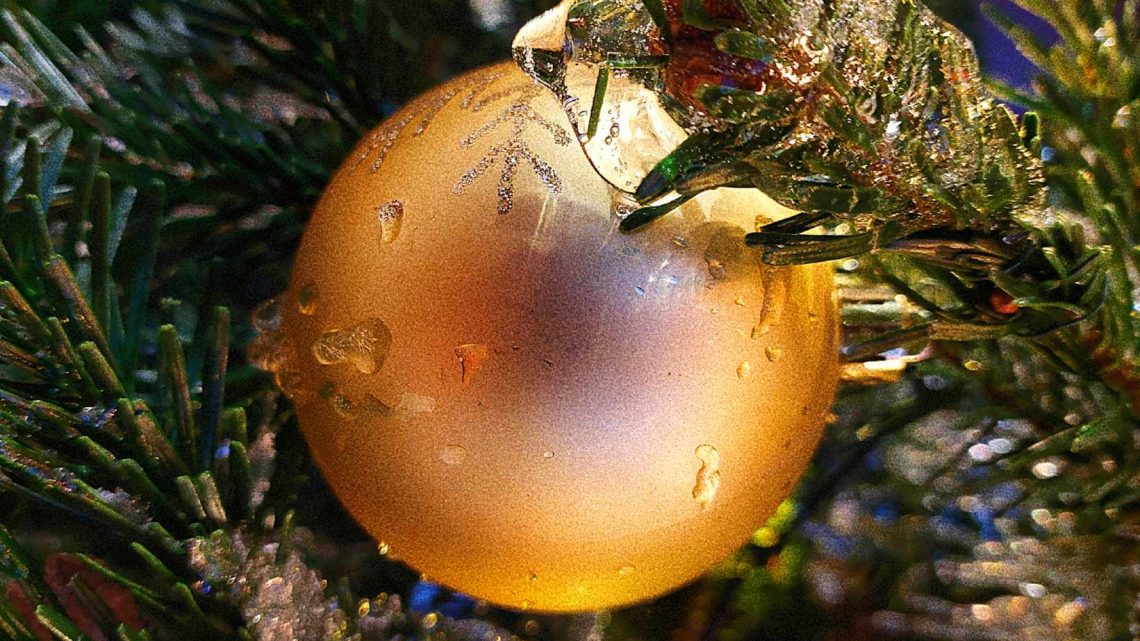
No Comment